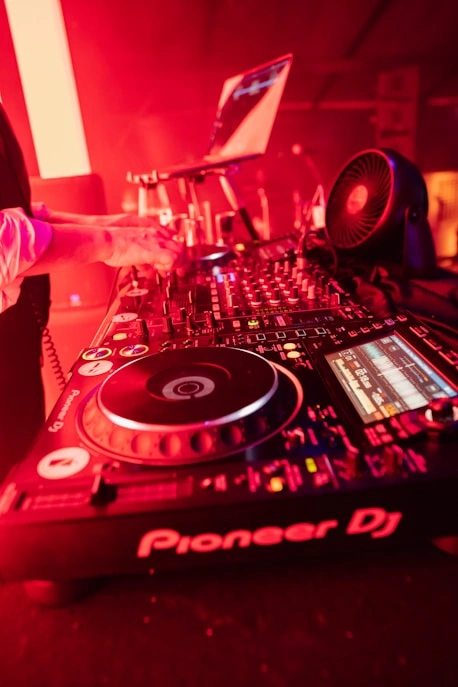n the world of entertainment, music is often considered the universal language that brings people together. Behind the scenes or on stage, one of the most vital figures in creating memorable experiences is the DJ. While many see a DJ as simply someone who plays tracks, their role is much more profound and multifaceted. Let’s explore why a DJ is an essential element in events, venues, and communities.
1. Creating the Perfect Atmosphere
A skilled DJ sets the tone for any event, whether it’s a wedding, club night, corporate event, or festival. Through carefully curated playlists and seamless mixing, they craft an atmosphere that matches the mood—be it energetic, romantic, or relaxed. Their ability to read the crowd and adjust the music accordingly keeps energy levels high and ensures attendees stay engaged.
2. Enhancing the Experience
Music is a powerful emotional trigger. A DJ doesn’t just play songs; they tell a story, evoke feelings, and create memories. Their expertise in selecting tracks that resonate with the audience transforms a simple gathering into an unforgettable experience. This emotional connection is especially important in celebrations like weddings or milestone events, where music plays a central role in marking special moments.
3. Expertise and Technical Skill
Beyond song selection, DJs bring technical skills that elevate the quality of the sound. They manage sound equipment, beatmatch tracks for seamless transitions, and use effects to enhance the listening experience. Their knowledge of music genres and trends allows them to introduce fresh sounds, keeping the playlist dynamic and engaging.
4. Dance Floor Dynamics
A good DJ understands the importance of a lively dance floor. They can read the crowd’s energy and adjust the music to maintain momentum. This ability to control the flow of the event ensures that guests stay entertained and motivated to dance, which is often the highlight of social gatherings.
5. Cultural and Community Significance
In many communities, DJs serve as cultural ambassadors, preserving and promoting musical traditions while also introducing new genres. They help foster a sense of identity and belonging through music, making their role vital in cultural festivals, local clubs, and community events.
6. Versatility and Adaptability
In today’s digital age, DJs are versatile artists who adapt to various settings—live streaming, radio shows, podcasts, and more. Their flexibility allows them to reach wider audiences and tailor their performances to different formats and preferences.
In Conclusion
A DJ is much more than a person who plays songs; they are storytellers, mood setters, technicians, and cultural connectors. Their contributions are crucial in shaping the ambiance, emotional experience, and overall success of events. Whether you’re dancing the night away at a club or celebrating a special occasion, the presence of a talented DJ can truly make all the difference.
So next time you attend an event with great music, remember—the DJ is the magic behind the scenes, orchestrating the rhythm of your unforgettable moments.

